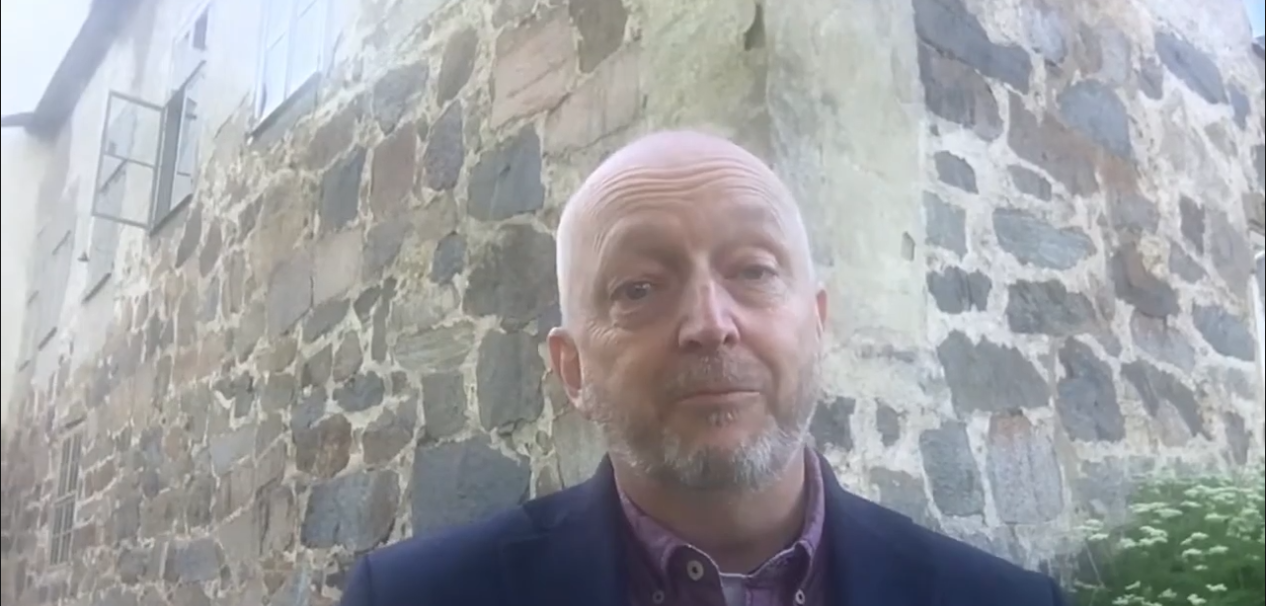
To get a good understanding of what is going on in the business we need to be able to ask questions – a lot of questions. But sometimes those questions that we need to ask are too sensitive to ask. And maybe we need to ask those sensitive question to a high level manager. This video addresses this dilemma.
I’m standing here in the beautiful forest by a beautiful building. It’s a castle, Penningby Castle. It’s from the late 13 hundreds. Anyway, in this video I’d like to talk to you about asking, or dare to ask questions even if it is to a higher level manager or your boss for example. The thing is that when you ask questions as a business analyst, you get to know a lot of things that, that are hidden in the organization, within the business, within the organization. There’s a lot of things that we don’t really talk about, but you need to ask those questions in order to find out the truth and that truth will then be able to help you to find a better and an improved business solution to problems that exist in the business. And it could be hard because in a hierarchy, it’s tough to ask sensitive, especially sensitive questions to a manager because sometimes you don’t really want to challenge them with that question.
You Have to Be the Truth Seeker
And sometimes you know that they don’t really have the answer, but you need to ask the question anyhow because you need to be the truth seeker in the organization because everything relies on you asking the right questions because you will then find the answers for those questions and that will help you and your business to improve better. There is a couple of things that could help you to be able to ask those critical questions in a better way. And one of them is that your status as a business analyst is well known in the organization. So people need to know that you’re actually the business analyst and it’s, it’s your game to ask those questions even though they might be hard to answer and they might be of sensitive art. So that’s one, you need to promote yourself in the organization that you are the business analyst and they should expect difficult questions from you.
Ask Questions Like a 5 Year Old
The other part is to have a model because if you have a model, you’ve communicated the model. A everyone knows in what phases, you are, what phases you have in that model. When you improve the business, then they will know that in a certain phase you will ask all these critical questions and with your status as a BA asking those questions and with the model that you have, you will be able then to, uh, like having a wildcard. You can go around and ask all these questions because they know why you asked them and they know who you are. And then when you ask the questions, it’s important to continue to ask these Why Questions I call them. You have probably heard about the Five Whys. I call them the five-year-old questions, questions that five year old people or kids talk about. And those questions are:
- Why do we do it like this?
- Do we have to do it like this?
- Why is that?
- Could you explain more?
- Why is it?
And so on. All those questions that you ask will give you a better answer and you will be able to find out more about the truth. The more you ask, the more you dare to ask those critical questions, the more of the truth you will find out.
Never Bail Out
I recall a couple of years back when I was working with an organization and there was a top manager within that workshop that I held and I, I was asking all those questions, why, why, why, and so on. And suddenly she was, she was so frustrated, she said “Matts, you’re so annoying.” And she wasn’t angry at me, she was more angry about not having all the answers for my questions because the questions were legitimate. She knew that she or others in the organization should have answers to those questions, but they didn’t so that was what she felt was annoying. So I urge you to continue ask critical questions, sensitive questions. Don’t bail out. Ask them because you will find the truth behind those questions and that will help you to help them to improve better. And I will to you in the next video. See you.

